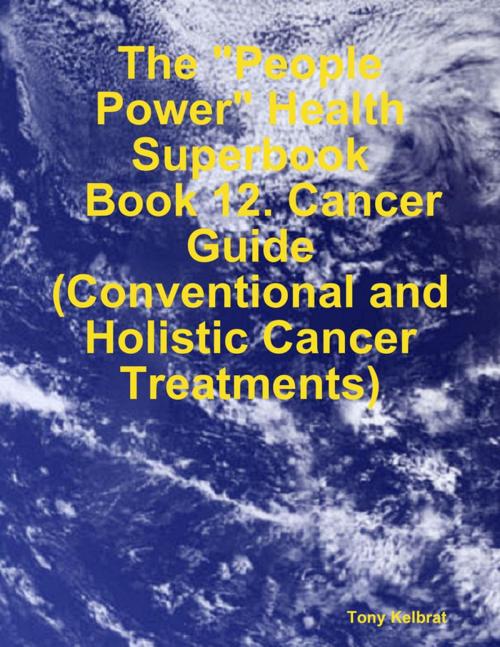The "People Power" Health Superbook: Book 12. Cancer Guide (Conventional and Holistic Cancer Treatments)
Nonfiction, Science & Nature, Science| Author: | Tony Kelbrat | ISBN: | 9781312071018 |
| Publisher: | Lulu.com | Publication: | April 4, 2014 |
| Imprint: | Lulu.com | Language: | English |
| Author: | Tony Kelbrat |
| ISBN: | 9781312071018 |
| Publisher: | Lulu.com |
| Publication: | April 4, 2014 |
| Imprint: | Lulu.com |
| Language: | English |
Cancer is a group of more than 200 diseases each of which, though different, attack some of the body's cells. Healthy cells that make up the body's tissues grow, divide and replace themselves in an orderly way to keep the body in good repair but toxic cancerous cells destroy the body. Cancer refers to all malignant tumours caused by the abnormal growth of a body cell or a group of cells. In men, cancer is usually found in the intestines, the prostate and the lungs. In women, it occurs mostly in the breast tissues, uterus, gallbladder and thyroid. The American Cancer Society has prescribed seven signs or danger signals in general which may indicate the presence of cancer. These are: a sore that does not heal; change in bowel or bladder habits; unusual bleeding or discharge; thickening or lump in breast or elsewhere; indigestion or difficulty in swallowing; obvious change in a wart or a mole a persistent and nagging cough or hoarseness. Other symptoms may include:
Cancer is a group of more than 200 diseases each of which, though different, attack some of the body's cells. Healthy cells that make up the body's tissues grow, divide and replace themselves in an orderly way to keep the body in good repair but toxic cancerous cells destroy the body. Cancer refers to all malignant tumours caused by the abnormal growth of a body cell or a group of cells. In men, cancer is usually found in the intestines, the prostate and the lungs. In women, it occurs mostly in the breast tissues, uterus, gallbladder and thyroid. The American Cancer Society has prescribed seven signs or danger signals in general which may indicate the presence of cancer. These are: a sore that does not heal; change in bowel or bladder habits; unusual bleeding or discharge; thickening or lump in breast or elsewhere; indigestion or difficulty in swallowing; obvious change in a wart or a mole a persistent and nagging cough or hoarseness. Other symptoms may include:















